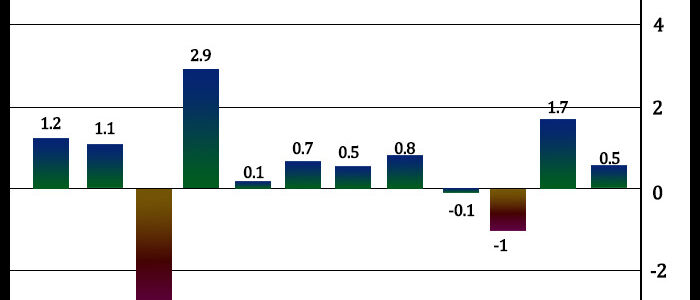
U.S. Industrial Production Rises Less Than Expected In November
The Federal Reserve released a report on Thursday showing U.S. industrial production increased by less than expected in the month of November.
The Fed said industrial production rose by 0.5 percent in November after surging by an upwardly revised 1.7 percent in October.
Economists had expected industrial production to climb by 0.7 percent compared to the 1.6 percent jump originally reported for the previous month.
While both manufacturing and mining output increased by 0.7 percent, the growth was partly offset by a 0.8 percent drop in utilities output.
“The solid 0.7% increase in manufacturing output last month suggests that shortages are gradually easing,” said Michael Pearce, Senior US Economist at Capital Economics.
He added, “With demand still strong, the latest surveys point to manufacturing output continuing to expand at close to 5% annualized pace in the coming months.”
Meanwhile, Pearce noted the decrease in utilities output reflected a dip in heating demand amid the unseasonably warm conditions across much of the country in November.
“That drop in utilities demand will eventually be revised while, even accounting for the recent drop back in oil prices, there is still plenty of scope for mining output to increase,” he said.
The report also showed capacity utilization in the industrial sector rose to 76.8 percent in November from a revised 76.5 percent in October. The increase matched economist estimates.
Capacity utilization in the manufacturing and mining sectors climbed to 77.3 percent and 77.7 percent, respectively, while capacity utilization in the utilities sector dipped to 73.2 percent.
Pearce noted capacity utilization in the manufacturing sector was at its highest level since December 2018 and in line with its average since 1980.
“That in turn will maintain upward pressure on goods prices and suggests that business equipment investment should strengthen in the quarters ahead – assuming firms can source equipment against a backdrop of still severe shortages,” Pearce said
Source: Read Full Article